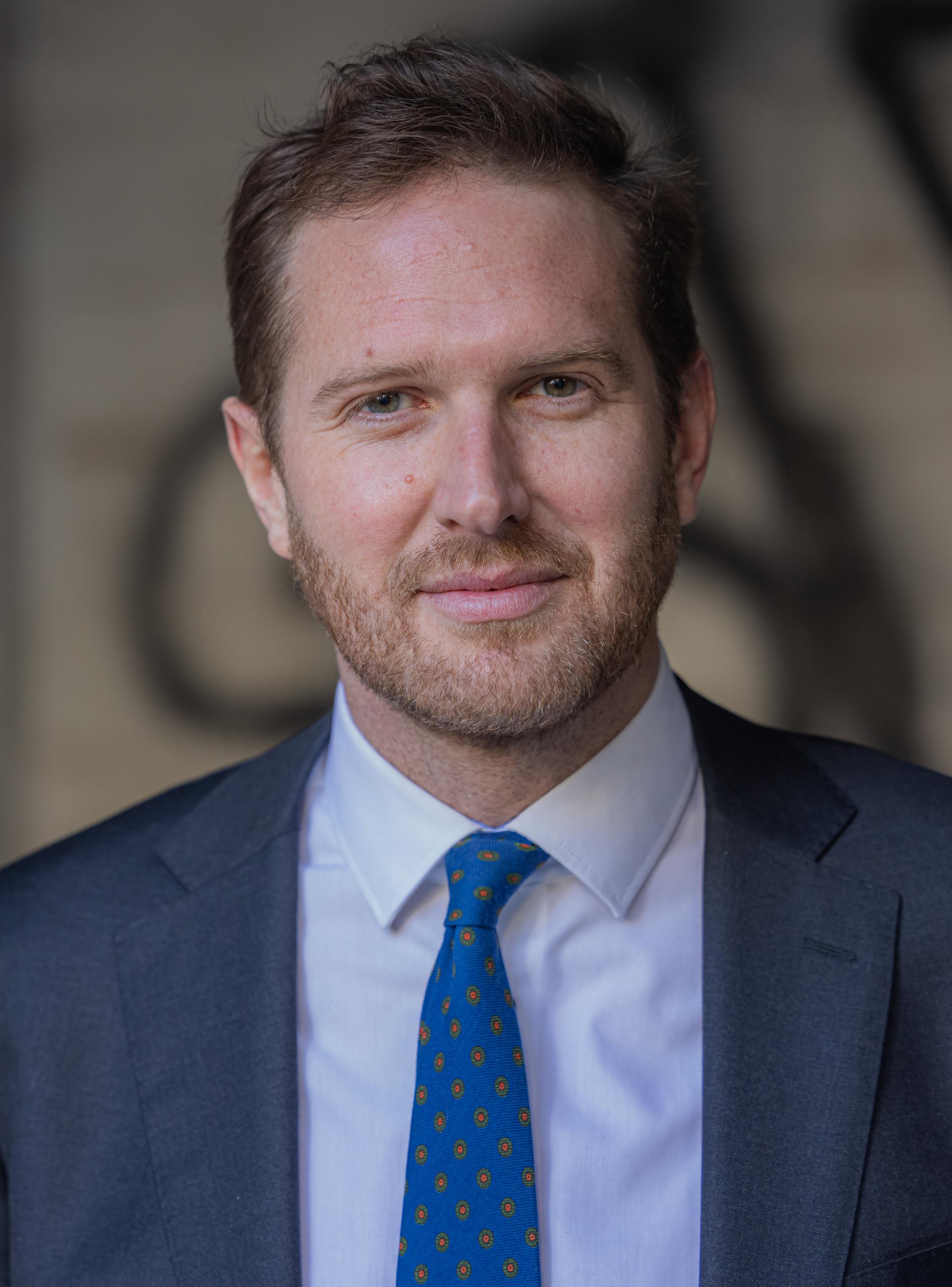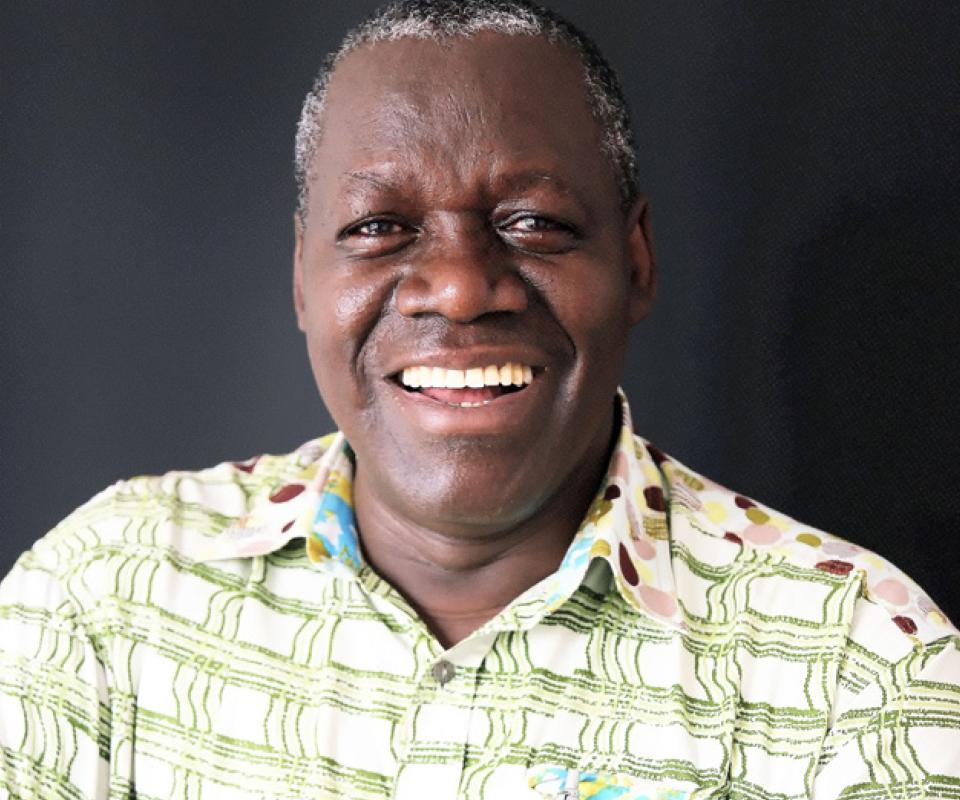
‘Captain Kirk’ sets a course for the King Baudouin Foundation
Brieuc Van Damme officially took over the helm on 1 May from Luc Tayart, who had steered the Foundation as CEO almost 30 years. It’s a hard act to follow - and he knows it.
Van Damme has spent the last few months at Tayart’s side, learning the ropes and getting to grips with KBF. Now it’s he who is responsible for the day-to-day leadership of the Foundation. “It’s quite a challenge,” he concedes. “Still, it’s something I really want to do. We’re totally ready for this, with an experienced management, committed, talented staff and an engaged Board of Governors and Chairman.”
Van Damme is well prepared for his new role. The son of a father from Bruges and a mother from Liège, he has worked as an economist, researcher, and teacher at a number of universities, and also as a ministerial adviser, entrepreneur, Director General of Belgium’s public health insurer INAMI, and co-founder of the Friday Group - a motley collection of young minds seeking innovative solutions to the challenges facing Belgium.
“I’m a policy geek,” he confesses. “As a leader, I want to mobilise my people to achieve a shared goal, working together in a participative way.” He has started out by contacting each and every person who works at KBF. What’s their focus? Their dreams? What do they expect from the Foundation?
Clearly this new CEO intends to get off to a flying start, together with KBF’s employees, its Board of Governors and the many experts who volunteer on KBF committees. Van Damme likes to compare the Foundation to the legendary Starship Enterprise in Star Trek. To boldly go where no one has gone before, is the motto of Captain Kirk and the crew as they voyage through space, searching for lost peoples and planets.
“I like to compare the Foundation to the Starship Enterprise: an institution whose projects, ideas, and solutions offer support where others cannot, or dare not, go. An institution that helps forgotten people and in situations that seem hopeless – by helping the most vulnerable, for example, or by acting as a social innovations laboratory for new concepts and solutions. In some cases, the proposed solutions may not quite hit the mark, but at KBF we are not afraid to make mistakes. If you don’t try out new ideas, you can’t make progress. That’s why we have to boldly go where no one has gone before,” says Van Damme.
“At a time when the pace of history is increasing, the tone of debate is becoming harsher, and populism is shouting louder, we have to work even harder to ensure that we listen to everyone – so that we speak in a nuanced, diverse voice that allows us to cooperate on imagining and constructing solutions to long-term challenges. KBF needs to be that voice,” says Van Damme. “This is the voice of people who don’t just grumble on the side lines, but who roll up their sleeves and get stuck in. We’re not afraid to jump in and will take the lead if it’s needed.”
He thinks the Foundation should also remain a meeting place, where everyone can make their voice heard: “This institution is built on pluralism. We need to stay that course, even as debates become ever more polarised. That is going to take resilience and empathy. We have to listen to what people care about in society, and listen too, especially, to those who feel they’re not being heard.”
In the coming months, Van Damme will be providing a glimpse of the course that is marked out for the Foundation now that he is at the helm: “We will continue to build on our strengths and face up to our challenges with open minds.”
It is in times like these, with a war on our doorstep, the aftermath of a pandemic, a looming climate crisis, and stormy economic weather, that society needs to reinvent itself and adapt to this new reality, says Van Damme: “These are tough times, but this is precisely when an institution like KBF has to see the opportunities that these changes offer us to contribute to building a better society. It won’t be easy, because change takes time, creativity, courage, and determination.”
“I like to compare the KBF to the Starship Enterprise: an institution whose projects, ideas, and solutions offer support where others cannot, or dare not, go."
Van Damme is a nature lover, and this approach reminds him of the decision to reintroduce wolves into Yellowstone National Park in the United States: “Eradicating the wolves caused a domino effect of unintended consequences. When they were reintroduced, despite protests from local people, fauna and flora flourished again. So you can see that small, sometimes even counterintuitive, actions which have been well thought through can get whole systems moving. That, for me, is the role of KBF.”
Other stories
Inspiring engagement!

The experience that led to the role of liaison officer in Africa
Europe and International Africa
"You need integrity and curiosity."

‘South-South’ cooperation to provide better help for street children
Europe and International
“We are proposing a programme to humanise the street.”

Soft sound improves sleep quality in dementia
"On the one hand, poor sleep leads to additional problems for patients, which also affects their caregivers, often resulting in institutionalisation. On the other hand, we wonder whether poor-quality deep sleep could worsen the disease or perhaps even contribute to its development."